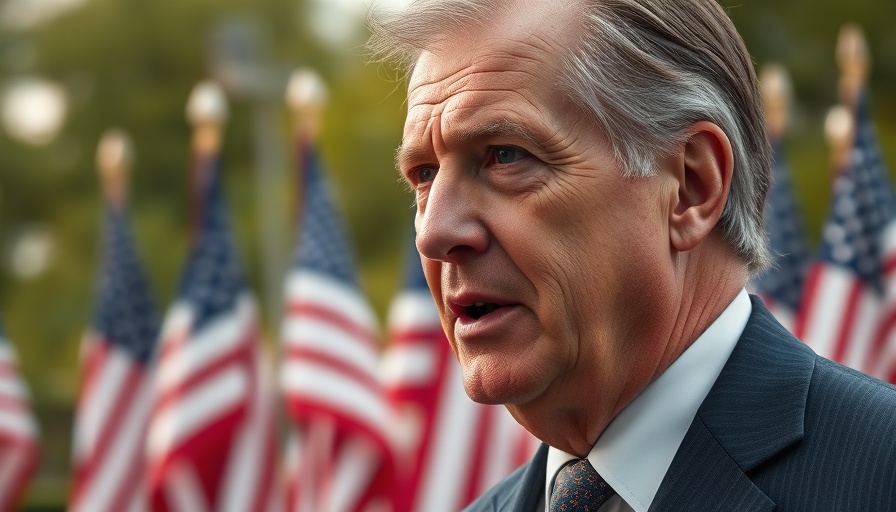
Eric Shawn's Personal Battle with Cancer: A Heartfelt Journey
In a poignant reflection on the lasting impact of the 9/11 tragedy, Fox News correspondent Eric Shawn bravely shared his personal battle with cancer and respiratory illness, both of which he attributes to the toxic dust exposure at Ground Zero. As we approach the 24th anniversary of the attacks, Shawn's story serves as a chilling reminder of the ongoing health crisis that continues to affect thousands who were exposed to the aftermath of that fateful day.
The Alarming Statistics Behind 9/11-Related Illnesses
The Centers for Disease Control and Prevention (CDC) reported that over 48,000 individuals have now documented various cancers linked to 9/11. This staggering number is more than just statistics; each figure represents a life altered, a family struggling, and a community binding together in shared grief and resilience. Many of these illnesses often lay dormant for years before surfacing, surfacing the need for ongoing support and attention to those affected.
The Importance of Recognition and Support
As stories like Eric Shawn's come to light, it is vital for society to recognize the ongoing struggles faced by first responders and those who lived or worked near Ground Zero. These individuals form a substantial part of the fabric of America, and their sacrifices should not only be honored but also actively supported. Initiatives that provide funding for medical care, preventive screenings, and mental health resources are essential in ensuring that those impacted can receive the help they deserve.
A Call to Action: Supporting Our Heroes
Supporting legislation such as the Zadroga Act, which provides healthcare and compensation for 9/11 responders and survivors, is critical. Advocating for awareness and funding can make tangible differences in the lives of those suffering. Organizing local events and raising funds can contribute immensely to ongoing healthcare initiatives and support networks.
Recognizing the Human Element: Lessons from Personal Stories
Eric Shawn’s deeply personal account encourages us to remember that behind every statistic, there’s a human story filled with vulnerability and strength. These narratives deserve our attention, not just in remembrance but in action—prompting community conversations and ensuring that support systems are in place.
Future Insights: Trends in 9/11 Health Responses
As we look to the future, it’s imperative that we address the health impacts of 9/11 with foresight. Continued monitoring of health outcomes and streamlined access to services are vital moving forward. The lessons learned from the past response to post-9/11 illnesses can inform how we address health crises in the future, ensuring that we remain vigilant and responsive.
How This Affects You: Insights for Our Communities
For those in Louisiana and other impacted regions, it’s essential to be aware of the resources available. Local health departments and community organizations can often provide information about screenings and support for affected individuals, ensuring that they are not alone in their journey to recovery. Keeping informed can also empower communities to advocate for policies that protect the health and safety of all residents.
The Emotional Impact: Connecting Through Shared Stories
Stories like Eric Shawn's resonate deeply, eliciting empathy and a sense of collective responsibility. They remind us not only of the sacrifices made but also of the communal bonds that are forged during adversity. Sharing these narratives fosters understanding and encourages individuals to reach out to those around them who may be struggling.
Common Misconceptions: Debunking Myths About 9/11-Related Illnesses
There are still many misconceptions surrounding the long-term health effects of 9/11. Some individuals believe that exposure-related illnesses predominantly affect first responders; however, civilians in the vicinity also face serious health risks. Public education is crucial in dispelling these myths and ensuring comprehensive awareness.
Empowered Actions: Next Steps for Communities
Getting involved in local health initiatives, supporting awareness campaigns, and engaging with representatives about ongoing health support may seem daunting, but every action counts. Whether it’s attending a local meeting or sharing information on social media, individuals can significantly contribute towards healing and support for 9/11 survivors.
As you reflect on Eric Shawn's story and the ongoing implications of 9/11, consider how you might contribute to the support of those affected. Every step taken, no matter how small, helps honor the sacrifices made and promises a stronger community moving forward.
 Add Row
Add Row  Add
Add 



Write A Comment